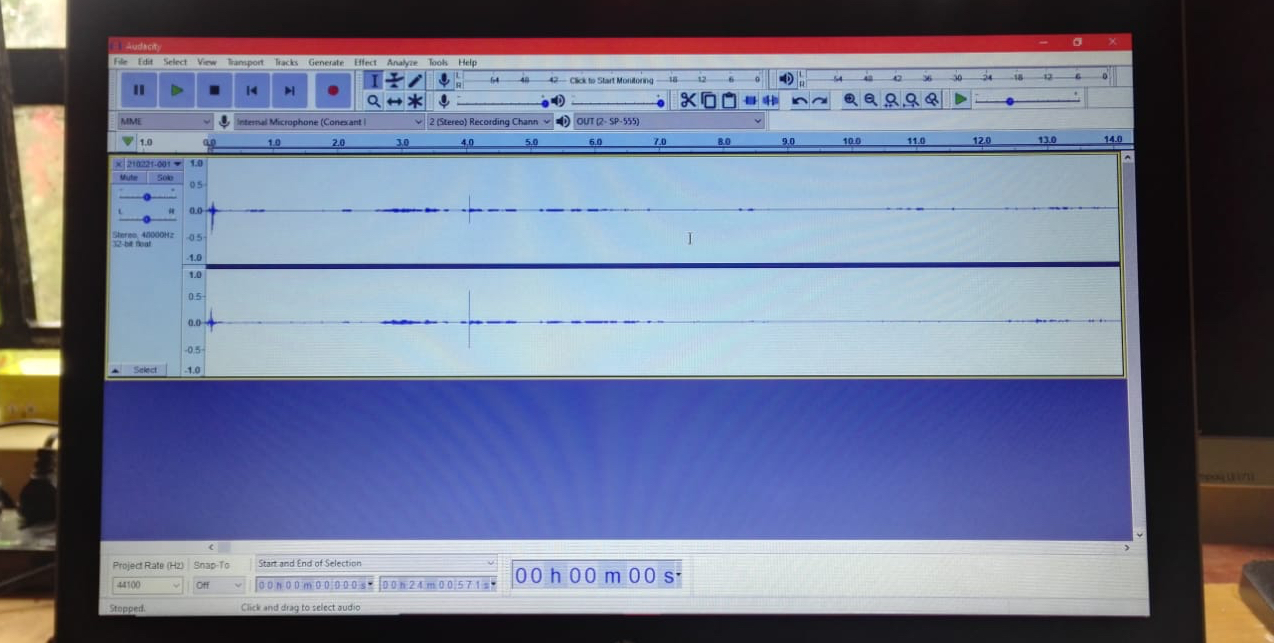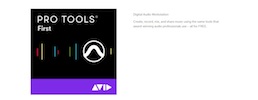
Free Pro Tools and three others
- ,
- , Raphael Kariuki
These are good times
At least for anyone interested in working with digital audio. Whether you are a novice recordist wondering how to start capturing your first soundscapes, or man like Kamaru, sweeping over the globe with a boundless stream of sophisticated sonic creations, you are fortunate to live at a time when all manner of digital tools are available to help with audio tasks simple or advanced. And the best part is, not only are we spoilt for choice but a large number of these tools offer professional quality for prices as low as… zero bob!
In this article, the SON team presents 4 of our favourite audio apps especially useful for recording and editing on everyday devices.
ONE and TWO: Sound Recorder Pro (Android) and Voice Record Pro (Android and iOS)

“Last week I was in a forest near Karatina. I did not plan to record but we had this crazy rain and I was in a hut with mabati roofing. It sounded on the one hand like white noise or drum rolls on the other you have these jazzy drips from the water coming down the side and hitting the floor.I did not bring a recorder so I decided to use my phone with the app” – S.
These two mobile apps are similar in function; they’re both fantastic options for any recordist. We’ve mentioned and recommended Voice Record Pro in this blog before so in this article we’ll talk about the other: Sound Recorder Pro.
Useful for: Recording high quality audio on ordinary phones.
We like it because: It gives you much more control over your recording quality and formats than the average default phone recorder, without getting too complicated for the less experienced recordist. While the in-app ads do take a lot of screen space, they don’t really get in the way of recording, and the minimal interface means you can capture interesting moments with no fumble or fuss. The app also offers simple, immediate options for sharing your audio or uploading to the cloud. Oh, and it is made by the guys at Tunga : )
Tip: Choose 44.1 kHZ (CD Quality) or 48 kHZ to capture audio quality suitable for professional applications and/or uploading to the archive.
THREE: Audacity (Windows, Mac, Linux)

“The first thing I install in any laptop I use is Audacity. The second thing is the web browser.” – R
Audacity is a free, open-source, professional audio editor for Windows, macOS and Linux.
Useful for: Simple and advanced single and multi-track editing on even the most basic laptop or PC.
We like it because: Audacity’s system requirements are so modest it can work on a PC from the year 2000, yet its features are capable enough for complex tasks usually handled by high-end applications. And not only is it completely free, it is also regularly updated and users can enjoy the support of a committed open-source developers’ community.
Tip: No amount of editing wizardry can correct a distorted recording, so avoid recording sounds at high input gain (mic level) and be especially careful with sounds that have sudden loud peaks (e.g. matatu banging sounds). You can then use the “Normalize” effect in audacity to balance out inconsistent recordings or boost weak recordings.
FOUR: PRO TOOLS FIRST (Windows and Mac)

“Free?”
Pro Tools First is the free version of the famous Pro Tools, long billed as the “Industry Standard” for digital audio workstations.
Useful for: Tip-toeing into the deep end of digital audio production.
We like it because: While it is certainly not the full beast, it is not a demo version but a fully capable if limited (by comparison) application in itself. And the fact that it is available for free is a big deal – it opens the door into serious audio work for students, hobbyists and those on a limited budget without the need for cracked software (no judgement!) and with high end product design. Pro Tools First still requires a decent computer however – you’ll need at least 8gb RAM (the 4gb ram stated on their website is not practical) and a pretty robust, uncluttered system, and a USB/Firewire/Thunderbolt audio interface. Even with other DAWs in your arsenal, the PT workflow is especially well-suited for multi-track audio editing, once you get used to it.
Tip: Not so much a tip as a caveat, Pro Tools is not so great for MIDI-based music composition in my opinion.
What other cool free audio tools are out there? Share your finds and tips in the comments!
© 2020 SOUND OF NAIROBI
